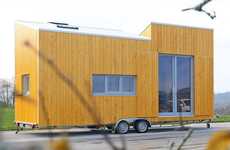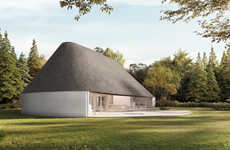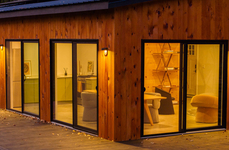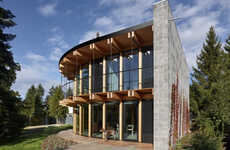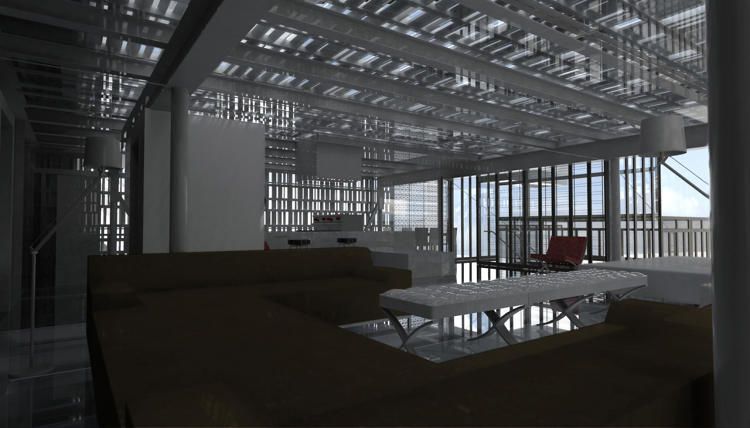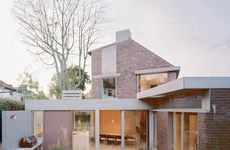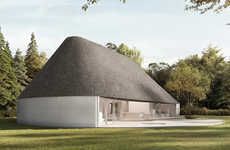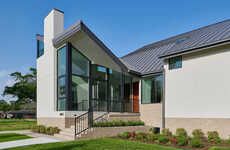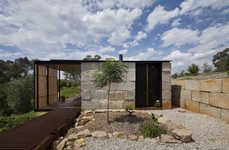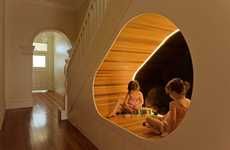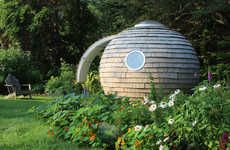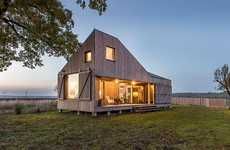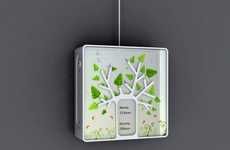
This Zero-Energy House Adapts to Changing Weather Conditions
Katherine Pendrill — August 10, 2015 — Eco
References: mo-ventus & fastcoexist
'Motus' is a zero-energy house that changes its shape based on current weather conditions. While the idea of a shape-shifting abode may seem futuristic, this home actually alters its form as a way of saving energy.
Motus is a zero-energy home that is built without the typical residential design that is characteristic of conventional architecture. The house is intended to adapt to the changing weather in order to make heating and cooling more efficient. The house is built on a liner track that facilitates easy horizontal movement. Its living area is completely encased in glass, allowing it to open up to the environment and cut the amount of energy needed for lighting.
The home also features a series of solar panels that help to power any devices inside of it. Appealing to eco-conscious home owners, this residence is so efficient that is can run entirely off the power grid.
Motus is a zero-energy home that is built without the typical residential design that is characteristic of conventional architecture. The house is intended to adapt to the changing weather in order to make heating and cooling more efficient. The house is built on a liner track that facilitates easy horizontal movement. Its living area is completely encased in glass, allowing it to open up to the environment and cut the amount of energy needed for lighting.
The home also features a series of solar panels that help to power any devices inside of it. Appealing to eco-conscious home owners, this residence is so efficient that is can run entirely off the power grid.
Trend Themes
1. Shape-shifting Abodes - A trend towards homes that can change shape based on weather conditions creates opportunities for energy-efficient living.
2. Zero-energy Houses - The development of zero-energy houses presents opportunities for reducing energy consumption and promoting sustainability.
3. Adaptive Architecture - The use of adaptable designs in architecture allows for more efficient use of resources and can enhance the comfort and energy efficiency of buildings.
Industry Implications
1. Renewable Energy - The renewable energy industry can benefit from the increased demand for solar panels and other energy-efficient technologies in Zero-Energy Houses.
2. Construction and Architecture - The construction and architecture industry can explore new design concepts and materials to create shape-shifting homes that offer energy savings and enhanced living experiences.
3. Home Automation - The home automation industry can provide smart systems and technologies to support the adaptability and energy efficiency of shape-shifting abodes.
4.7
Score
Popularity
Activity
Freshness


